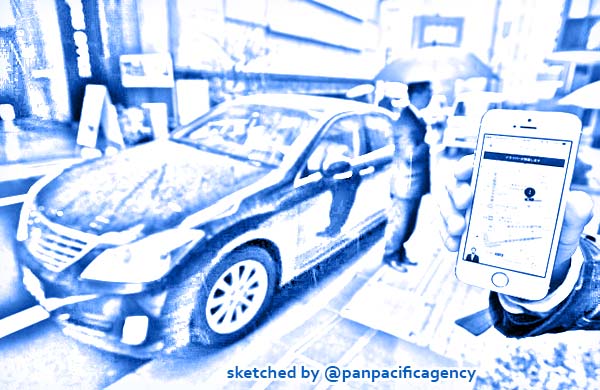Indian Supreme Court orders probe into anti-trust practices by Uber’s taxi-hailing app

An Uber Japan Co. employee holds an Apple Inc. iPhone 5s showing a map on the Uber application for a photograph during a demonstration in Tokyo, Japan, on Wednesday, March 5, 2014. Photographer: Junko Kimura-Matsumoto/Bloomberg. Sketched by the Pan Pacific Agency.
NEW DELHI, Sep 8, 2019, FE. The Supreme Court has ordered a probe into the alleged abuse of dominance and anti-competitive practices by popular taxi-hailing app operator Uber India Systems. It also requested the director general to complete investigation within six months, reported the Financial Express.
Refusing to interfere with the erstwhile Competition Appellate Tribunal’s December 2016 order, a bench led by Justice RF Nariman dismissed Uber’s appeal, saying it would be difficult to say that no prima facie case is made out from the material provided by the informants.
It found sufficient material to order an investigation into allegations against Uber, which intentionally was losing as much as Rs 200 per ride, offering cheap rides to customers and heavy incentives to drivers. As per Meru Cab’s complaint, Uber allegedly resorted to many abusive practices with the sole intent to establish its monopoly and eliminate otherwise equally efficient competitors from the market by way of discounts and incentives.
The radio taxi service provider had alleged that Uber was intentionally suffering losses on the rides on its application, pricing them below cost to gain customers (predatory pricing) and directly or indirectly forcing cab drivers to remain exclusively on its platform, thus indulging in anti-competitive practices. It said that Uber was willingly losing as much as approximately Rs 200 per trip. It was also alleged that Uber is spending about $885 million to generate a revenue of $415 million.
“Given the allegation made, …it is clear that if, in fact, a loss is made for trips made, Explanation (a)(ii) would prima facie be attracted in as much as this would certainly affect the appellant’s competitors in the appellant’s favour or the relevant market in its favour. In so far as ‘abuse’ of dominant position is concerned, under Section 4(2)(a), so long as this dominant position, whether directly or indirectly, imposes an unfair price in purchase or sale including predatory price of services, abuse of dominant position also gets attracted. Explanation (b) which defines ‘predatory price’ means sale of services at a price which is below cost. This being the case, on the facts of this case, on this ground alone, we do not think it fit to interfere with the order made by the Appellate Tribunal,” the Supreme Court said.
Earlier in 2017, the apex court had put on hold the Compat’s order that directed fair trade watchdog Competition Commission of India (CCI) to probe afresh the alleged abuse of dominance by Uber. The Compat had in December 2106 ordered a probe after Meru Travels Solutions challenged the CCI’s earlier decision that refused to order a probe into allegations against Uber’s unfair practices including predatory pricing.
The tribunal had directed CCI’s probe unit director general to conduct a fresh probe into the allegations of abuse of dominance and anti-competitive practices by Uber. The CCI in February 2016 had rejected Meru’s complaint, saying inability of the existing players to match the innovative technology of any player or the model created for operating in a particular industry cannot be said to be creating entry barriers in itself. With respect to abuse of dominance, the CCI defined the relevant market as the market for radio cabs in Delhi alone. The CCI disagreed with the complainant that the market was that of entire Delhi–NCR.
“The size of discounts and incentives shows there are either phenomenal efficiency improvements which are replacing existing business models with the new business models or there could be an anti-competitive stance to it,” the tribunal had said.
Taking note of Uber’s substantial market share, Compat said, besides the appellant (Meru), there are a few very small players in the market who can be seriously affected if any of the bigger players adopts anti-competitive practices.